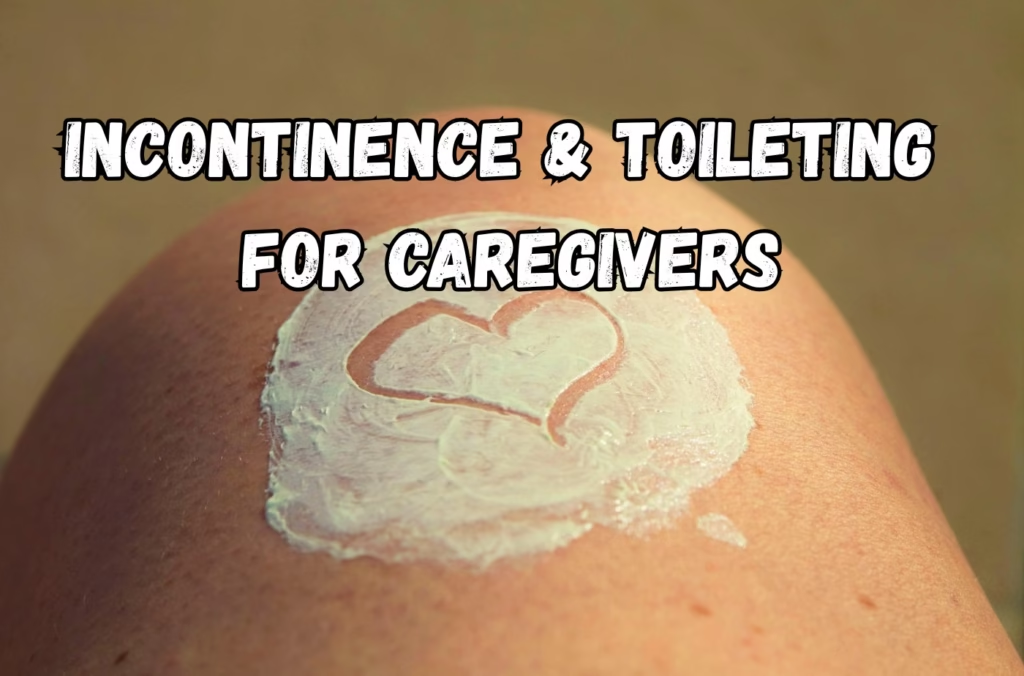It’s not uncommon to hear seniors addressed with simplified and diminutive language, an approach known as ‘elderspeak.’ While it may seem benign, this communication style can have unintended negative consequences on senior health. As we explore the dangers of elderspeak, itâs important to understand its impact and consider respectful alternatives.
1. Introduction to Elderspeak and Its Prevalence
Defining Elderspeak and Its Distinct Characteristics
Elderspeak is a form of communication often used by younger individuals when addressing older adults, characterized by a patronizing tone and simplistic language. This type of speech typically involves slower speaking rates, exaggerated intonation, higher pitch, simplified vocabulary, and the use of terms endearment like “sweetie” or “dear.” It mirrors the way one might talk to a small child, rather than an adult with a lifetime of experience.
The intention behind elderspeak may be to express affection or facilitate understanding. However, it can actually come across as demeaning or disrespectful. This type of communication can undermine the autonomy and competence of older adults, leading to negative consequences for their mental health and overall well-being.
How Prevalent is Elderspeak in Care Settings?
In various care settings, elderspeak is unfortunately quite common, although precise prevalence rates are challenging to quantify. Studies have shown that caregivers often resort to this manner of speech, sometimes subconsciously, based on the assumption that older adults have diminished capacities. This prevalence is troubling because it can affect the patient-caregiver relationship and potentially impact the quality of care.
The use of elderspeak is not only limited to professional settings but can also occur in family interactions and everyday encounters. Recognizing and adjusting these communication patterns are essential steps in promoting respectful and empowering discourse with older adults. The awareness of the dangers of ‘Elderspeak’ on Senior Health is growing, leading to more informed training for professionals in gerontology and caregiving sectors to address and reduce its occurrence.
**To protect the dignity and mental health of seniors**, it is important for everyone interacting with older adults to be mindful of their speech and attitudes. Caring communication that acknowledges the rich experiences and capabilities of the elderly fosters a healthier and more supportive environment for all involved.
2. The Psychological Impacts of Elderspeak on Seniors
Demeaning Tone and Undermined Autonomy
When it comes to communication, the quality of interaction can significantly affect an individual’s mental and emotional state. Seniors who experience elderspeak—speech characterized by a simplified syntax, exaggerated intonation, and a patronizing tone—can feel demeaned. Elderspeak is not just about using pet names or speaking louder; it carries an undertone of superiority that covertly suggests the elderly are less capable or competent.
This type of communication can lead to feelings of frustration and sadness among older adults. Moreover, when autonomy is undermined, it impacts an individual’s sense of control and can lead to decreased motivation to engage in activities of daily living. Such an approach can inadvertently convey a lack of respect and decrease the recipient’s desire for independence.
The Link Between Elderspeak and Senior Self-Esteem
The implications of elderspeak on self-esteem are significant. When consistently addressed in a manner that suggests incompetence, seniors may begin to view themselves through that lens. This altered self-perception can affect their confidence and willingness to participate in social situations, increasing feelings of isolation.
A steady decline in self-esteem also contributes to a range of emotional issues such as stress and depression, which can, in turn, affect physical health. Recognizing the dangers of ‘elderspeak’ on senior health is crucial for caregivers, family members, and health professionals. It is important to foster an environment where the elderly feel valued and respected, which can greatly enhance their quality of life.
In everyday interactions, it is beneficial to maintain a conversational style that reflects equality and consideration. By understanding the negative impact of elderspeak, we can all contribute to a more positive and supportive atmosphere for our senior community.
3. Elderspeak’s Contribution to Ageism
Understanding the Impact of Elderspeak on Ageism
Elderspeak—a patronizing form of communication often used by younger individuals when addressing older adults—can unintentionally perpetuate ageism. This condescending tone and simplified language imply that older adults are not capable of understanding regular adult conversation, fueling stereotypes and ageist attitudes towards seniors. Such dialogue suggests that aging inherently leads to diminished capabilities, which is not only inaccurate but also harmful.
Aside from reinforcing societal biases, elderspeak can have a direct and detrimental effect on the individuals subjected to it. Reinforcing negative self-perceptions among older adults, this type of speech can erode confidence and self-esteem. When seniors are treated like children or spoken to as if they cannot comprehend, they may begin to question their own mental acuity and relevance in society. This can lead to a withdrawal from social interactions and a decreased sense of purpose and well-being.
The Dangers of ‘Elderspeak’ on Senior Health, therefore, extend beyond mere communication patterns. It is an issue that has deep psychological effects, contributing to the marginalization of older adults. Recognizing and rectifying the use of elderspeak is a vital part of fostering a more inclusive and respectful society where age does not define one’s value or abilities.
It is essential for caregivers, family members, and the healthcare community to be aware of the subtle yet profound impact their words can have. Adopting a communication style that respects the intelligence and experience of older adults is a simple yet powerful way to combat the negative implications of elderspeak. By doing so, we can contribute to a healthier, more respectful aging experience for all.
4. Physical Health Ramifications Tied to Elderspeak
Understanding the Dangers of ‘Elderspeak’ on Senior Health
The term ‘elderspeak’ might not be familiar to everyone, but its impact, especially on senior health, can be significant. Often characterized by a patronizing or overly familiar way of speaking to older adults, elderspeak may resemble the tone one uses when talking to small children. It’s crucial to understand that the implications of such communication extend far beyond mere offense or annoyance; they involve marked stress responses and their effects on physical health.
Stress Responses and Consequences for Elderly Health
When older individuals are subjected to elderspeak, the resulting stress response is not unlike what anyone might experience in a condescending interaction. However, the consequences of repetitive stress are particularly pronounced in the elderly due to their vulnerability to health fluctuations. **Stress can trigger inflammatory reactions**, and for seniors, this might exacerbate existing conditions like heart disease or diabetes. Additionally, stress hormones can interfere with sleep patterns and **immunity**, leaving seniors more susceptible to infections and illnesses.
The Link Between Elderspeak and Decline in Health Outcomes
Research makes a compelling case for the negative impact of elderspeak on health outcomes. Studies indicate a correlation where seniors who are routinely addressed in a patronizing manner experience **declines in physical and mental well-being**. This association suggests that elderspeak doesn’t just hurt feelings—it could actually **hasten health deterioration**.
From increased rates of depression and anxiety to a measurable decline in the willingness to engage in physical activities, the repercussions of elderspeak mean it’s a public health concern. Addressing how we communicate with older adults isn’t just a matter of respect—it’s also about safeguarding their health and enabling them to maintain their well-being for as long as possible.
**Families and caregivers**, it’s essential to be cognizant of how your communication style could unintentionally contribute to stress and poorer health outcomes for the seniors in your care. By recognizing and correcting the use of elderspeak, we can help promote a healthier and more respectful environment for our older population.
5. Strategies to Mitigate the Dangers of ‘Elderspeak’
Adopting a Person-Centered Communication Approach
Effective communication is pivotal in maintaining the dignity and self-esteem of older adults. A person-centered communication approach emphasizes respect, empathy, and the individuality of each senior citizen. To mitigate the dangers of ‘elderspeak’ on senior health, it is essential to focus on the preferences and needs of the older adult, rather than defaulting to assumptions based on age.
This approach entails addressing seniors by their preferred names or titles, and engaging in conversations that recognize their experiences and knowledge. Asking for their opinions and listening actively demonstrates valuing their input, thereby reducing the likelihood of patronizing interactions.
Education and Training for Caregivers and Professionals
Education plays a crucial role in combating the unintended condescension of elderspeak. Comprehensive training programs for caregivers and healthcare professionals can raise awareness about the impact of language and communication styles on the mental and emotional well-being of older individuals.
- Workshops and seminars can equip caregivers with the necessary tools to engage in respectful and empowering dialogue.
- Role-playing exercises can help in understanding the senior’s perspective and adjusting communication strategies accordingly.
- Continuous education allows for staying updated on best practices in senior care, emphasizing respectful communication.
By promoting an understanding of the negative effects of elderspeak, we can foster a more inclusive and supportive environment for older persons. When caregivers actively work to employ these strategies, we move closer to a society where all members communicate with the dignity and respect they deserve.
6. Encouraging Positive Interaction with Seniors
Understanding the Importance of Respectful Communication is a cornerstone of positive interaction with senior individuals. It’s vital to recognize that each person, regardless of age, desires and deserves to be treated with dignity and consideration. Effective communication with older adults requires attentiveness, patience, and the clear avoidance of condescension.
By engaging seniors with the respect they are entitled to, we can foster an environment of mutual respect. Empowering Seniors Through Inclusive Dialogue not only nurtures their self-esteem but also encourages them to share their wealth of experience and knowledge. Such an approach ensures that their contributions are valued and that they remain active participants in conversations and decision-making processes.
It’s important to be mindful of the dangers of ‘elderspeak’ on senior health. This form of communication can have a detrimental impact on the well-being of older adults. Addressing them in a manner that is overly simplified, excessively endearing, or akin to baby talk, can lead to feelings of incompetence or reduced self-worth.
On the contrary, engaging in discussions that include seniors as equal partners can significantly improve their psychological health and enhance their quality of life. The goal is to maintain a balance that recognizes their capabilities while offering assistance when necessary, without defaulting to patronizing speech.
Remember, your choice of words and the way in which you communicate significance. In every interaction, aim to uplift and respect, allowing seniors to feel seen, heard, and valued.
7. Legal and Organizational Responses to Patronizing Speech
Policy Changes and Protections Against Discriminatory Language
Recognizing the need for respectful communication, many institutions have implemented policy changes to curtail the use of patronizing or discriminatory language. This includes healthcare settings where senior patients are especially vulnerable to the effects of condescending speech patterns. Organizations now frequently include clauses in their codes of conduct that explicitly prohibit language that may demean or belittle older adults.
Such policy alterations often accompany training programs aimed at educating staff about the importance of using empowering language. The goal is not only to prevent potential harm but to foster an environment where all individuals feel valued and respected. Protections are not only moral; they are becoming legal imperatives too. Legislation at both federal and state levels is increasingly recognizing the necessity to provide legal remedies against age-related discrimination.
Advocacy Groups and Their Role in Promoting Awareness
Advocacy groups play a pivotal role in raising awareness about the impact of patronizing language on older individuals. These organizations conduct workshops, seminars, and media campaigns to enlighten the public and professionals about respectful communication practices. By highlighting the importance of language, these groups help shift societal attitudes and promote more inclusive interactions.
Their efforts are not only educational but also support the creation of a broader cultural change, where the dangers of ‘elderspeak’ on senior health are taken seriously. Advocacy groups work tirelessly to ensure that everyone, from caregivers to policymakers, understands the significance of their words in shaping the well-being of older adults. Their active presence in the community helps ensure that these issues stay at the forefront of public discourse.
By monitoring organizations and pushing for continuous improvement, advocacy groups help secure a dignified and respectful discourse for all, regardless of age.
Startling Insight: Studies suggest that elderspeak can increase the risk of depression and social withdrawal in seniors, emphasizing the need for a societal shift in how we communicate with our elder population. Recognizing the dangers of ‘Elderspeak’ on senior health is not just about changing how we talk; it’s about changing how we think about aging and respect.


